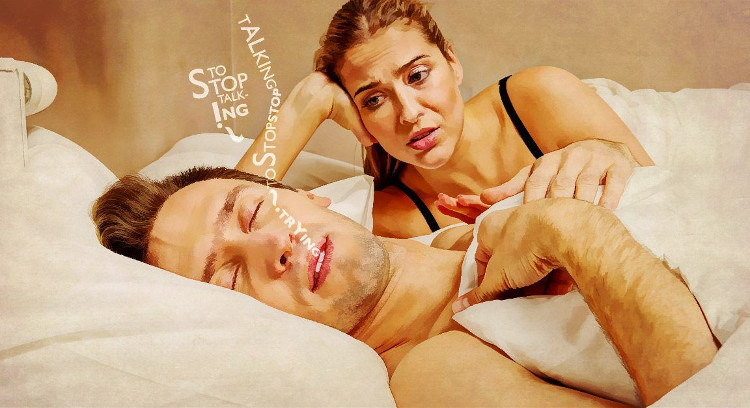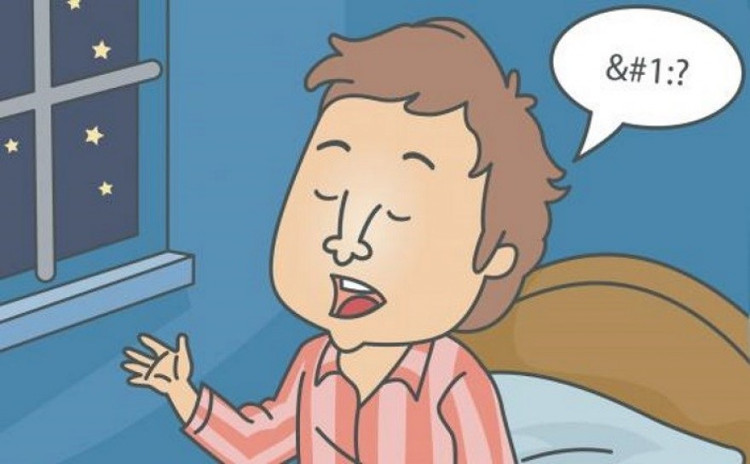Research has shown that people flutter a lot ... 800 times when dreaming
It's hard to control what you say, better yet, you should sleep alone.
Have you ever been worried about what you said when you were dreaming? If yes, that's right, because according to a new study published, what you say in dreams is even worse than what you say in real life.

In this study, scientists found that the subjects said 'no' more than four times more than normal. And yet, the number of swearing is about 800 times more than when waking up.
The study designed over 230 adult subjects, recorded sleep for 2-3 consecutive nights for a total of nearly 900 sleeps. Because dreaming is a relatively rare phenomenon, the subjects selected for the study often suffer from sleep disorders that cause many unusual behaviors during sleep.
The study subjects will be recorded the parameters of words, silence, tone, attitude and negative languages. This result will be compared with the largest language data bank in France, to see when to sleep and when we know how we talk differently, both in terms of words and context.

The majority (59%) of dreams are only incomplete.
Researchers found that the vast majority (59%) of the attacks were only incomplete, such as whispering, mumbling, or laughter. But the number of negative words is high: 24% have bad content, 22% have negative words, and the word 'no' occurs in 5% of cases (while it only accounts for 2 , 5% of the words said when waking up.
From F *** appears very dense, and it is the most common word in this study. Make up 2.5% when you're dreaming of sleeping, while the rate when you're in the province is only 0.003%.
What is the cause of this situation? The theory of 'Dangerous Simulation', a theory that explains the working mechanism of dreams, can give a possible answer. This doctrine holds that dreaming is a model that helps 'train' people against the dangers that can happen in real life - this is also very likely an evolutionary trait unique to humans.

The language center is still active even when we are sleeping.
Although the words that come out when dreaming can tend to be more rough and obscene when they wake up, the research results show that their content and context are not much different from when they wake up. Dream sentences still retain the correct grammatical structure and follow the language patterns correctly, as well as the number of words and regular breaks when the subject wakes up. This detail may suggest that the language center is still active even when we are sleeping, but, having too many incomplete syllables, like murmurs, whispers back There is a certain inhibitory effect from the brain.
Although these are just initial sketches, the results from this study provide some very valuable suggestions in continuing to exploit the mysteries of sleep and dreams. The answer to these mysteries will help mankind to better understand themselves, because, when no longer suppressed by everyday pressures, the dream is where humans best express their nature and desire. mine.
- Decode the most common nightmares
- Is 'dreaming in the middle of the day' harmful or beneficial?
- The mystery of 2000 people dreaming about a man
- Dreaming during the day helps people increase their concentration
- Dream decoding: Dream to see the money and the omen of mystery behind it
- People crave the most and fly while dreaming
- Dreaming in the daytime benefits the brain!
- Stigma makes fat people become more fertile
- Learn more about the phenomenon of dreaming before the future (déjà vu)
- Unusual body-do-sleep actions that we don't know
- Why can sleepwalkers avoid stabbing their heads into walls?
- Dream Decoding: What does it mean to be
 Green tea cleans teeth better than mouthwash?
Green tea cleans teeth better than mouthwash? Death kiss: This is why you should not let anyone kiss your baby's lips
Death kiss: This is why you should not let anyone kiss your baby's lips What is salmonellosis?
What is salmonellosis? Caution should be exercised when using aloe vera through eating and drinking
Caution should be exercised when using aloe vera through eating and drinking